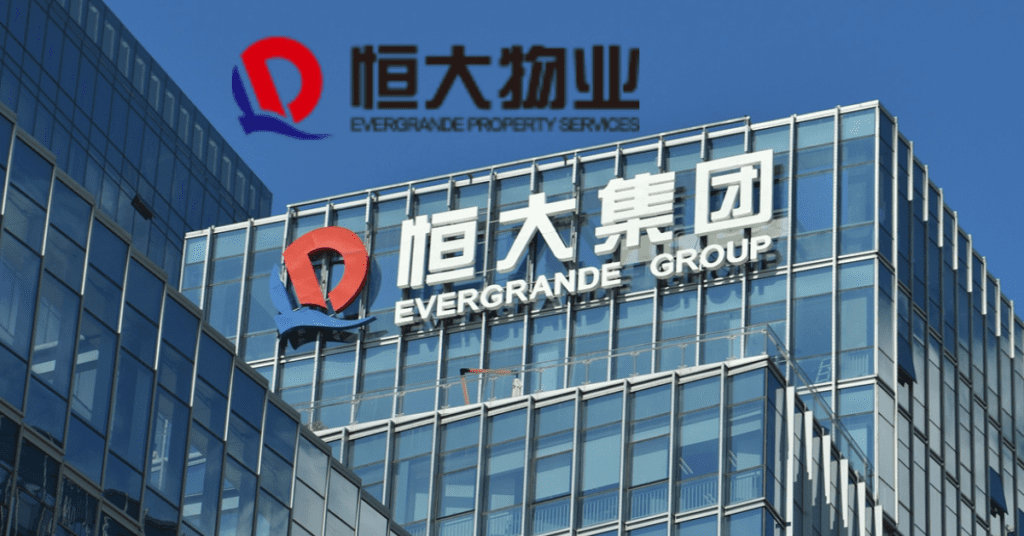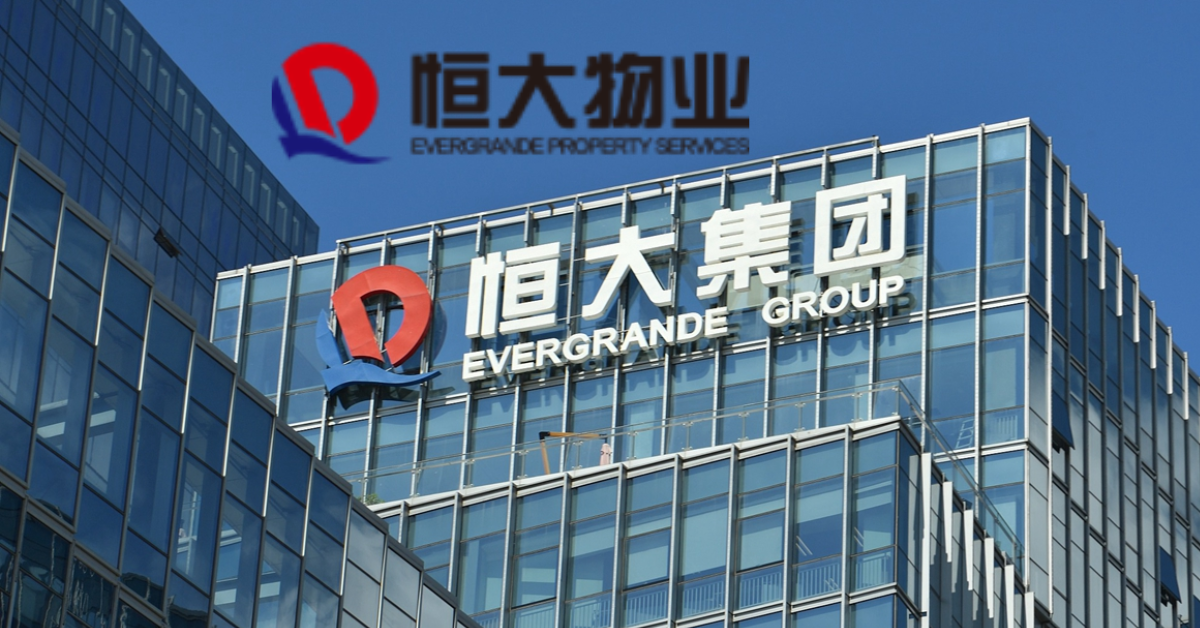In a surprising turn of events, stock trading in the renowned Chinese real estate giant, Evergrande Property Services, came to an abrupt halt in Hong Kong. This significant development occurred following a court-issued winding-up order against the company.

Legal Action Takes its Toll
The city’s stock exchange made an official statement, declaring the suspension of trading in the shares of Evergrande Property Services Group Limited at precisely 10:19 a.m. The suspension extended to its electric vehicle subsidiary at the same critical moment, signaling a profound impact on the company’s diverse ventures.
The Unraveling Crisis
This judicial decision solidifies Evergrande Property Services’ position as the most prominent symbol of China’s ongoing real estate crisis. With staggering liabilities amounting to 2.39 trillion yuan ($333 billion), the company has become a focal point, negatively affecting economic growth and eroding consumer confidence.
Legal Measures and Management Changes
The court’s decision mandates the appointment of provisional liquidators to manage the company. They will address various issues, including the control exerted by founder and Chairman Hui Ka Yan, marking a significant shift in the company’s leadership structure.
The Unsuccessful Negotiations
Despite years of negotiations, Evergrande Property Services failed to reach an agreement with its creditors. Notably, founder Hui Ka Yan faced legal troubles, being placed under police control in September on suspicion of committing crimes.
Analyst Insights
Zerlina Zeng, a credit analyst at Creditsights Singapore LLC, commented on the situation, stating, “The liquidation order is not entirely a surprise to the market given the creditors were still not able to agree on the restructuring terms.” With the majority of assets located on the mainland, doubts arise about substantial recovery for offshore creditors from the liquidation order.
Evergrande Property Services’s Downfall Continues
Evergrande Group, the world’s most indebted property developer, faced a significant setback as a Hong Kong court ordered its liquidation. This decision follows a failure to reach a consensus with overseas creditors on the restructuring of the company’s massive debt.
Lingering Crisis
The Shenzhen-based developer, with total liabilities exceeding $328 billion, has been a focal point of China’s property crisis since 2021. Founder Xu Jiayin’s detention by the police in September added to the turmoil. The company’s default on financial obligations in December 2021 triggered a crisis in the property sector, casting a shadow over the broader economy.
Market Reactions and Trading Halts
The impact of Evergrande’s liquidation order reverberated in the financial markets. Trading in its shares plummeted, leading to a halt at approximately 10:18 a.m. Hong Kong time after a 20% decline in volatile trading. Subsidiaries, including Evergrande Property Services and Evergrande New Energy Vehicle Group, also called for trading halts.
Creditors’ Last-Minute Struggle
Overseas creditors of Evergrande failed to reach a restructuring deal in the eleventh hour, intensifying the company’s financial woes. The resulting market dynamics led to fluctuations, with China’s CSI 300 index falling 0.26%, while Hong Kong’s Hang Seng index rose over 1.21%.
A Blow to Confidence
The court’s decision to order the liquidation of Evergrande Group is poised to deal a severe blow to confidence in China’s economy, the second-largest globally. The ruling comes after prolonged legal battles and a failure to present a viable plan for restructuring the company’s substantial debt.
Economic Ramifications
China’s real estate sector, accounting for 15-30% of the economy, continues to face challenges. Evergrande’s default in 2021 triggered a series of defaults and missed payments by more than 50 Chinese real estate developers in the past three years, according to Standard and Poor’s (S&P).
Uncertain Future and International Ramifications
Following the Hong Kong court’s ruling, uncertainties loom over Evergrande’s asset sheet. While China has an agreement with Hong Kong regarding insolvency and restructuring proceedings, it remains unclear whether mainland courts would sanction liquidators seizing the developer’s assets within the country.
Legal Complexity
Hong Kong’s common law system, distinct from China’s Communist Party-controlled courts, adds a layer of complexity. Mainland courts have only recognized one liquidation order granted in Hong Kong previously, raising questions about the enforceability of such decisions.
In conclusion, Evergrande Property Services’ winding-up order marks a pivotal moment in China’s real estate crisis, with far-reaching consequences for the company, its creditors, and the broader economic landscape.
Read: Decoding the Future: 3D Printing’s Evolution and Projections for 2024


1 thought on “Unraveling Evergrande Property Services: A Deep Dive into China’s Real Estate Crisis”